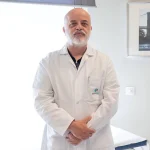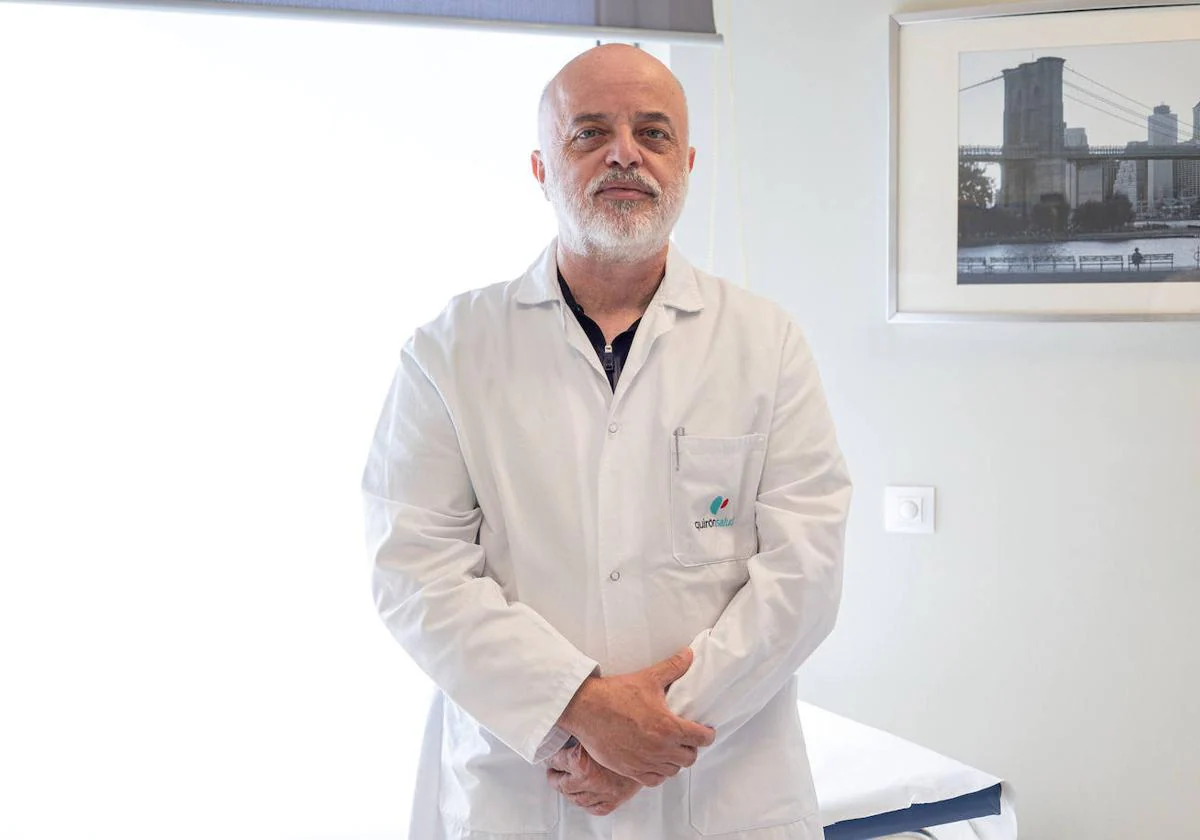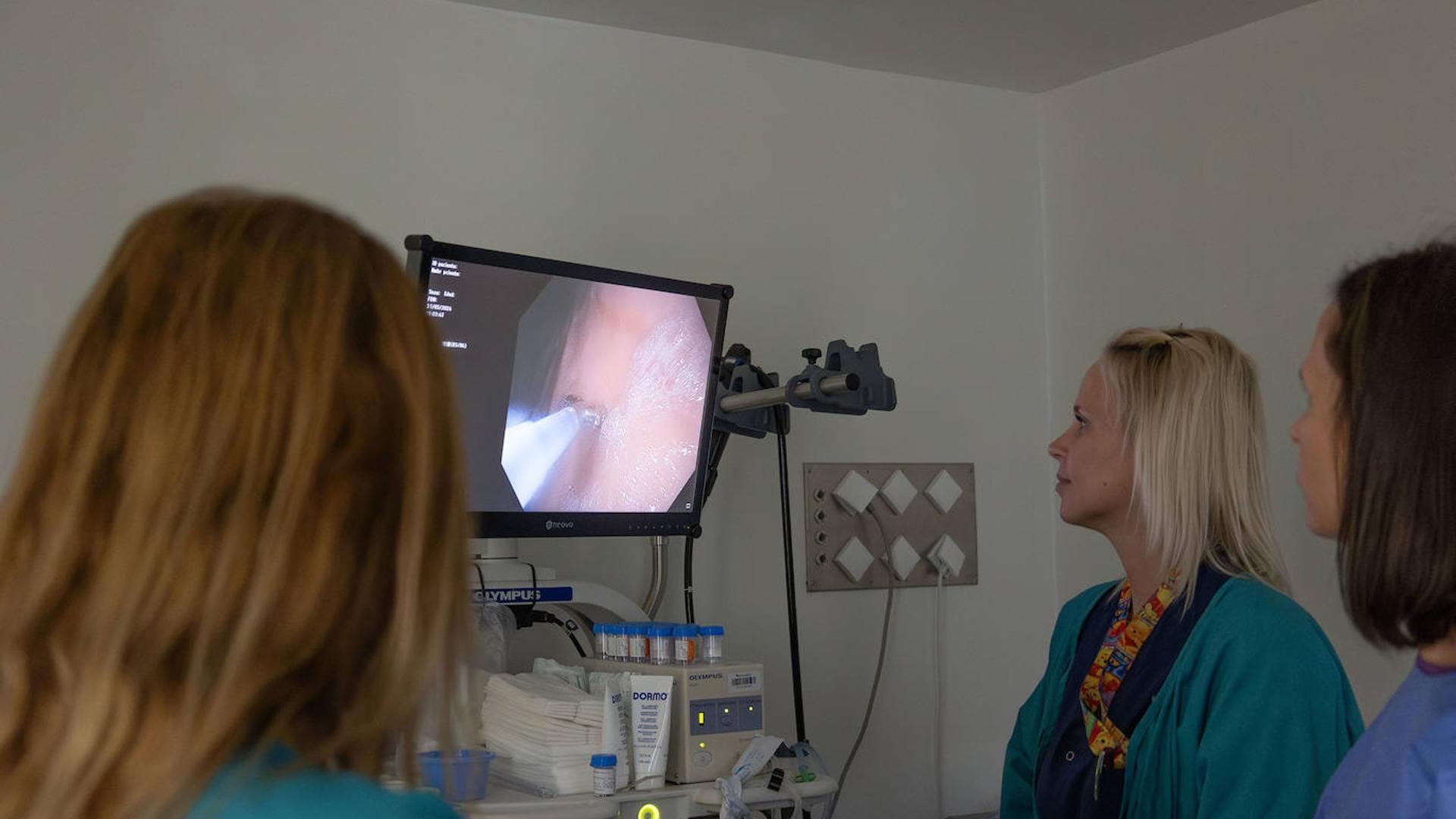
Friday, June 7, 2024, 11:10
Colon cancer is located in the large intestine, which is the final part of the digestive system. The term colorectal cancer is also often used, because the rectum is the last area that connects with the outside through the anus. Normally this type of tumor originates from the degeneration of tissues from polyps and it is estimated that the transformation of these cells into a malignant tumor can last between 8 or 10 years. This is why early detection tests are decisive in the diagnosis since specialized intervention in the early stages of the disease considerably increases the chances of survival.
According to statistics from the Spanish Association Against Cancer, colorectal cancer is the most common type of tumor or with the highest incidence in Spain and its prevalence is especially pronounced in patients between 50 and 70 years of age. However, specialists point out a change in trend that affects younger segments of the population. “Unfortunately, we are detecting colorectal cancer more and more frequently and it is important to note that cases are increasing at younger ages,” says Dr. Enrique Aycart, head of the General Surgery and Digestive System service at the Quirónsalud Marbella Hospital.
Another section that the expert clarifies is the influence of genetic inheritance. It is widely believed that most colorectal cancer diagnoses are determined by the individual’s genetic factor. However, Aycart specifies that “although it is true that genetics influences, in colorectal cancer studies suggest that the genetic link is only 5%.” Of course, the expert points out as an exception to relatives of patients with colon cancer due to familial polyposis who are recommended to be included in screening programs that maintain periodic control of their health status.
Colonoscopy is one of the main diagnostic tests that allows us to visualize the existence of tumor and polyps. «In the event that polyps are detected, this procedure allows the mass of tissue to be removed at the same time and thus prevent it from developing in the future. Likewise, it allows samples to be taken for subsequent analysis in the laboratory and the most appropriate treatment to be prescribed for each patient, if necessary,” explains the head of the General Surgery and Digestive System service at the Quirónsalud Marbella Hospital.

Treatment of colorectal cancer often requires surgery and may require complementary treatments such as chemotherapy or radiotherapy. «This decision will depend on the stage of the tumor. The tumor committee, made up of a multidisciplinary team of experts, analyzes the most appropriate approach on a case-by-case and personalized basis, guiding the patient at all times and accompanying them in their recovery process,” explains Dr. Aycart.
Prevention is the best measure to avoid the appearance of colorectal cancer and in this type of tumor, the associated risk factors are mostly avoidable. The adoption of healthy habits reduces the risk of manifestation of this disease. A diet with an abundance of fruits, vegetables and foods rich in fiber, as well as avoiding a sedentary lifestyle are allied measures for our health. It is also advisable to avoid the consumption of tobacco and alcohol.
Highly complex interventions in oncological surgery
The General Surgery and Digestive System service of the Quirónsalud Marbella Hospital is one of the leading areas in the healthcare project of the health center after the implementation of a consolidation plan led by Dr. Javier Padillo who assumes the role of Senior Consultant. This strategic planning highlights the implementation of highly complex interventions and the design of strategic actions to enhance the surgical and technological developments of the surgery service that have allowed the sustained growth of the medical specialty, offering the patient comprehensive care that covers all their needs. .
Oncological surgery is one of the outstanding sections promoted at the Marbella hospital. In addition to the specialized approach in cases of colorectal cancer, the consolidation of a team of experts focused on pancreatic hepatobiliary surgery (pancreatic cancer), liver cancer and Peritoneal Carcinomatosis (tumor dissemination that affects the peritoneum and neighboring organs and that requires highly developed technology, such as hyperthermic chemotherapy).
Quirónsalud in Andalusia
The Quirónsalud Hospital Group currently has seven hospital centers in Andalusia located in the cities of Málaga, Marbella, Los Barrios (Cádiz), two in Seville, Córdoba and Huelva, in addition to 18 specialty and diagnostic medical centers and one hospital. surgical day, which positions it as a private hospital leader in this autonomous community.
About Quirónsalud
Quirónsalud is the leading health group in Spain and, together with its parent company Fresenius-Helios, also in Europe. In addition to its activity in Spain, Quirónsalud is also present in Latin America. Together, it has more than 50,000 professionals in more than 180 health centers, including 57 hospitals with more than 8,000 hospital beds. It has the most advanced technology and a large team of highly specialized professionals of international prestige. Among its centers are the Jiménez Díaz Foundation University Hospital, Teknon Medical Center, Ruber Internacional, Quirónsalud Madrid University Hospital, Quirónsalud Barcelona Hospital, Dexeus University Hospital, Gipuzkoa Policlínica, General University Hospital of Catalunya, Quirónsalud Sagrado Corazón Hospital, etc.
The Group works to promote teaching (ten of its hospitals are university) and medical-scientific research (it has the FJD Health Research Institute, accredited by the Secretary of State for Research, Development and Innovation).
Likewise, its healthcare service is organized into transversal units and networks that allow it to optimize the experience accumulated in the different centers and the clinical translation of its research. Currently, Quirónsalud is developing a multitude of research projects throughout Spain and many of its centers carry out cutting-edge work in this area, being pioneers in different specialties such as oncology, cardiology, endocrinology, gynecology and neurology, among others.

